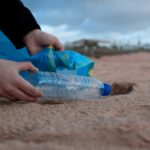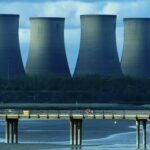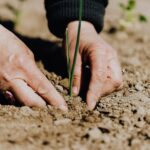

FORTHEM is an Europe-wide network that consists of multidisciplinary public research universities. The network adresses different, future-oriented research topics - the so-called labs.
On this page, we welcome you to learn more about the Climate & Resource lab within FORTHEM.
This Lab addresses topics related to climatic change and Earth resources. Both the United Nations (UN) and the European Commission (EC) identify these as critical topics for future research, teaching and science communication. For example, the UN highlight Climate Change as a Global Issue, and their 2020 Sustainable Development Goals (SDG) include 7: Affordable and clean energy, 12: Responsible consumption and production, and 13: Climate action.
The consequences of climate change are staggering. Past records, modern observations and numerical simulations clearly demonstrate it impacts ecosystems, the quality of the environment, and aspects of human society, politics, communication, and civil engagement. The scientific community has already convincingly demonstrated anthropogenic processes influence Earth’s climate systems, and that our current practices drastically accelerate climate changes, and will do so increasingly in future. Rich and diverse research continues to refine the records and simulations of climate change and environmental changes. Achieving climate-neutral development, and mitigating the effects of ongoing change, requires development of innovative technologies – both for alternative energy sources, and for green technologies – that make efficient use of Earth resources.
A very broad range of increasingly scarce Earth resources are required for the wellbeing (and comfort) of humanity. The EU recently released an updated List of Critical Raw Materials which serves as a guide for the focii of this FORTHEM Lab. We explore the formation of resources, extraction methods, and environmental mitigation. Furthermore, since sustainable resource use worldwide is severely hampered by a broad lack of understanding of the origin and finite nature of resources, we particularly focus our attention on communicating about this topic to society.
More generally, FORTHEM’s Climate and Resources lab members are devoted toward ensuring collaborative education and research (i.e. Citizen Science) enhances societal understanding of these topics, as this will demonstrably build societal resilience to them.
Research Teams and Areas
The scientific teams involved in FORTHEM’s Climate and Resources lab in the 7 universities include about 150 scientists with international expertise in climate sciences (including numerical modeling and data sciences), environmental sciences (including ecology, biology, zoology, soil sciences, agronomy and hydrology), Earth sciences (including paleontology, sedimentology, volcanology and geology), chemistry, geochemistry and geophysics, law and humanities (including geography, economy, anthropology and social sciences).
This diversity and complementarity is our force, as it allows us to explore the complex problems of climate change and natural resources through multi-disciplinary or trans-disciplinary approaches. This holistic view is necessary to address issues of crucial importance such as the transition towards a low-carbon world or to explore concepts like sustainability with a broad variety of expertise and skills.
More precisely, the research teams involved in the Climate and Resources lab focus on the following questions:
- History of climate change: what we can learn?
- How do Earth processes, such as volcanic eruptions and plate tectonics, modify climate?
- Climate change as a driving force of landscape and ecosystem change, and responses of these systems
- Impacts of climate change on resources, such as water and food
- Response of economies, social formations, and human populations to climate change
- Climate change regulations and policies
- Development of approaches for climate change communication and education
- Adaptation tools, strategies, their efficiency and focus
- Alternative energy sources, such as geothermal, wind, tide, and hydro-electric energy
- Sustainability of critical Earth resources needed to respond to and mitigate climate change.
- Tools for low-carbon development, including bioeconomy and alternative energies
- Biorefinery to achieve maximally efficient use of biomaterials
- Carbon budgets of organisations (such as the FORTHEM Alliance)
To see an overview of the research focii of each partner university please visit Expertise of the Alliance.






Does it sound interesting to you?
That's great! Click here for more information on how to get active!
And join our mailing list to be up to date!
Further information:
